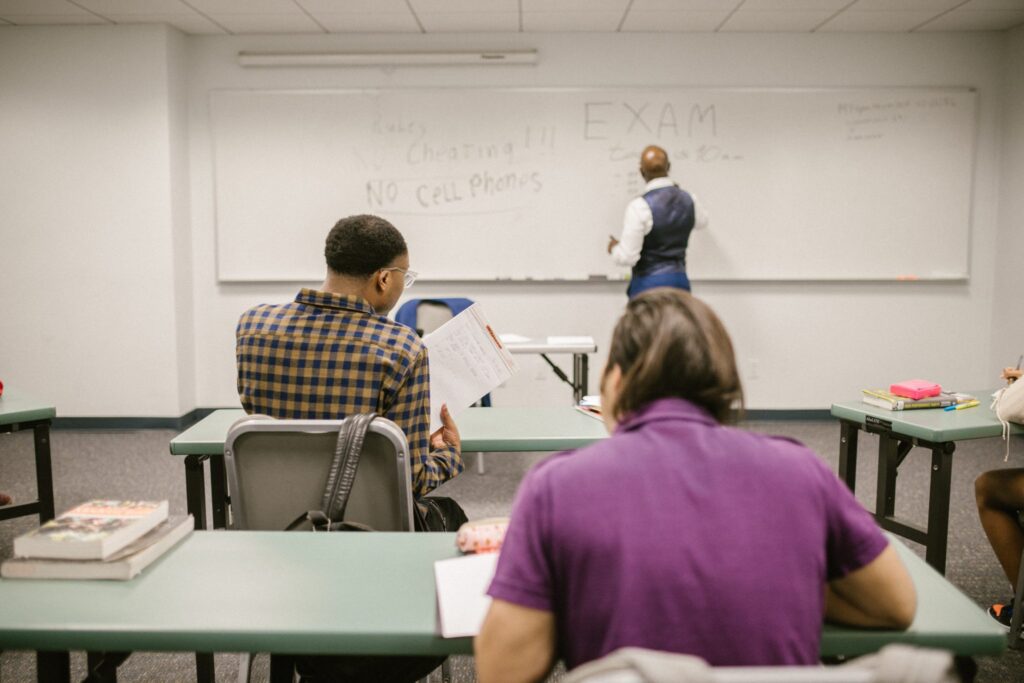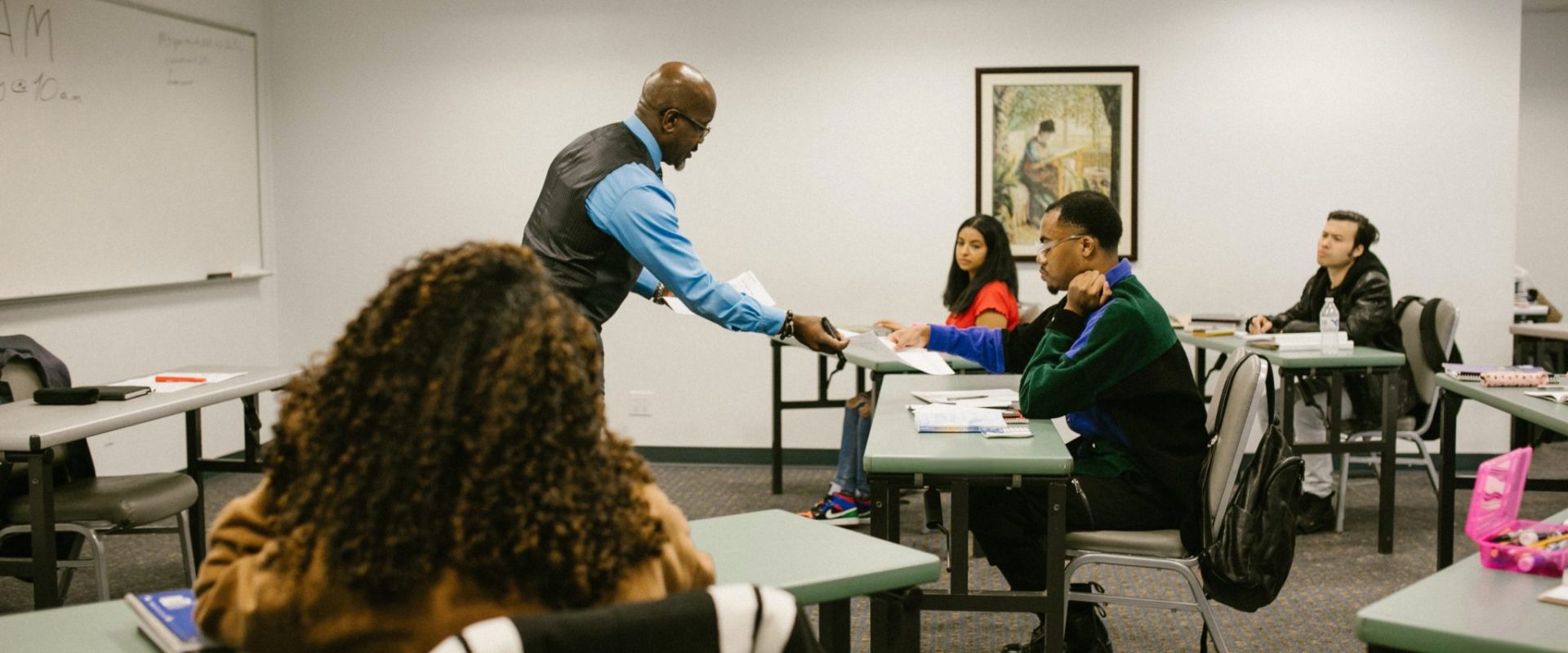Racial Equity in Remedial Education
Students enter California’s colleges with academic interests and career goals that can support their futures. However, once on campus, they are met with institutional obstacles. Unnecessary barriers like non-credit-bearing remedial courses pose inequitable access to college completion.

Unfortunately, structures within the system such as remedial courses – perpetuate inequitable access to these opportunities. Our state and system leaders must eliminate remedial courses to remove an unnecessary obstacle to college access and success that disproportionately affects Black and Latinx students.
What are remedial courses?
Remedial courses (sometimes called “developmental education” or “prerequisites”) are non-credit-bearing courses that students must complete before taking college-level (also known as “transfer-level”) courses that count toward degree completion and/or transfer. While they were intended to prepare students for success in general education courses, they actually put college-level courses out of reach for a disproportionate number of Black and Latinx students.

Remedial courses are ineffective and a threat to racial equity.
Research in the past decade has demonstrated that remedial courses are ineffective, and because Black and Latinx students are disproportionally placed in these remedial courses, they perpetuate racial inequities in higher education. Remedial courses actually hinder degree completion: just over 30 percent of community college students placed in remedial courses completed a degree, certificate, or transfer in six years, compared to 70 percent of students placed directly in college-level courses. At the California State University, fewer than half of students assigned to remedial courses graduated in six years. And yet, almost 90 percent of Black and Latinx students were enrolled in at least one remedial course across California Community College campuses (CCC) in 2009 and about 60 percent of Black and 50 percent of Latinx students were enrolled in at least one remedial course across the California State University (CSU) system in 2017.
Corequisites are better than remedial courses.
Corequisites are a promising alternative to remedial courses. These courses provide supports for students while they are in transfer-level courses. Corequisite courses and supports include concurrent support courses, intensive academic support services, extended instructional time, and other supports in transfer-level courses. A substantial body of research finds corequisites are more effective than remedial courses, and states including Colorado, Indiana, Georgia, Tennessee, and West Virginia are seeing dramatic results among students enrolled in corequisite models as compared to prerequisite models/remedial courses. The data on corequisites find that both students and institutions benefit, as demonstrated through college-level course completion, increased graduation rates, persistence, and even a financial return through increased tuition revenue due to student persistence in college. Black and Latinx students in particular are benefitting from corequisite models, compared to transfer-level courses without support.
Efforts to eliminate remedial courses leave more work to be done
Assembly Bill 705 was enacted in 2017 to address the negative impact of remedial education on students in California’s community colleges. The law requires colleges to implement evidence-based alternative practices for supporting students, including multiple measures for assessing and placing students in transfer-level courses. Further, the law seeks to maximize students’ chances of completing transfer-level math and English courses in one year. After AB 705 was passed, completion of transfer-level courses increased for every student group.
The California State University Chancellor’s Office issued Executive Order (EO) 1110 in 2017, requiring CSU campuses to eliminate stand-alone developmental education prerequisites and calling instead for alternative instructional models to support students in credit-bearing courses. Removing remedial courses led to significant increases in the completion of general education requirements.
However, the majority of community colleges still offer and continue to place students in remedial courses — courses that delay and deter their educational goals. In fact, 59 percent of community colleges with more than 2,000 Black students are weak implementers compared to only 22 percent of colleges statewide. These rates of disproportionate remedial course offerings only demonstrate that colleges serving sizable numbers of Black students are much more likely to stack their class schedules with remedial courses. Weak implementation allows racial equity gaps to persist, holding Black and Latinx students back from success in college-level English and mathematics/quantitative reasoning courses compared to white and Asian students.
In 2022, the California Legislature and Governor Gavin Newsom passed AB 1705, a law that closes loopholes in AB 705, including clarifying that all colleges must:
-
- Enroll students in math and English classes where they have the greatest likelihood of completing degree and transfer requirements
- Not require students to repeat math and English classes they passed in high school
- Provide greater protections to ensure that students are not required to take extra math and English courses that don’t count towards their degree requirements
- Ensure that students have supports that help them make progress toward their goals
California Community Colleges and California State Universities must commit to remedial education reform
Stronger remedial education reform efforts across CCCs and CSUs would be a key lever for advancing racial equity. To increase access to college success for students of color, the CCC and CSU systems must commit to the following policy and practice changes:
- Fully implementing AB 705 and AB 1705 by enrolling students in transfer-level courses with appropriate support
- Repurpose state funding of remedial courses for transfer-level courses and corequisites instead
- Set a goal with a deadline by which to eliminate the placement of students in remedial courses
- Provide corequisite support in transfer-level courses
- Utilize culturally sensitive curriculum and teaching practices, including affirmation of students’ experiences and promoting a sense of belonging
- Build strong relationships among students, faculty, and staff
- Provide implicit bias training for faculty and staff
- Apply equitable grading policies, such as options to re-do/re-write work toward continuous improvement
- Hire diverse faculties comprised of equity-oriented instructors committed to teaching transfer-level courses with corequisite supports
- Commit to upholding and centering, diversity, equity, and inclusion (DEI) and Equal Employment Opportunity (EEO) in all remedial education reforms
- Report placement outcome data transparently


